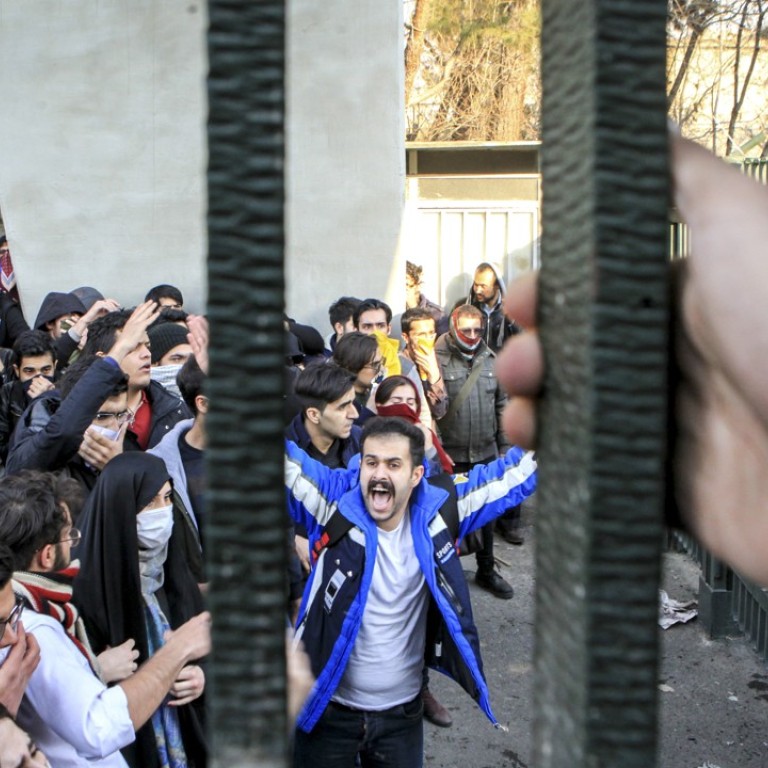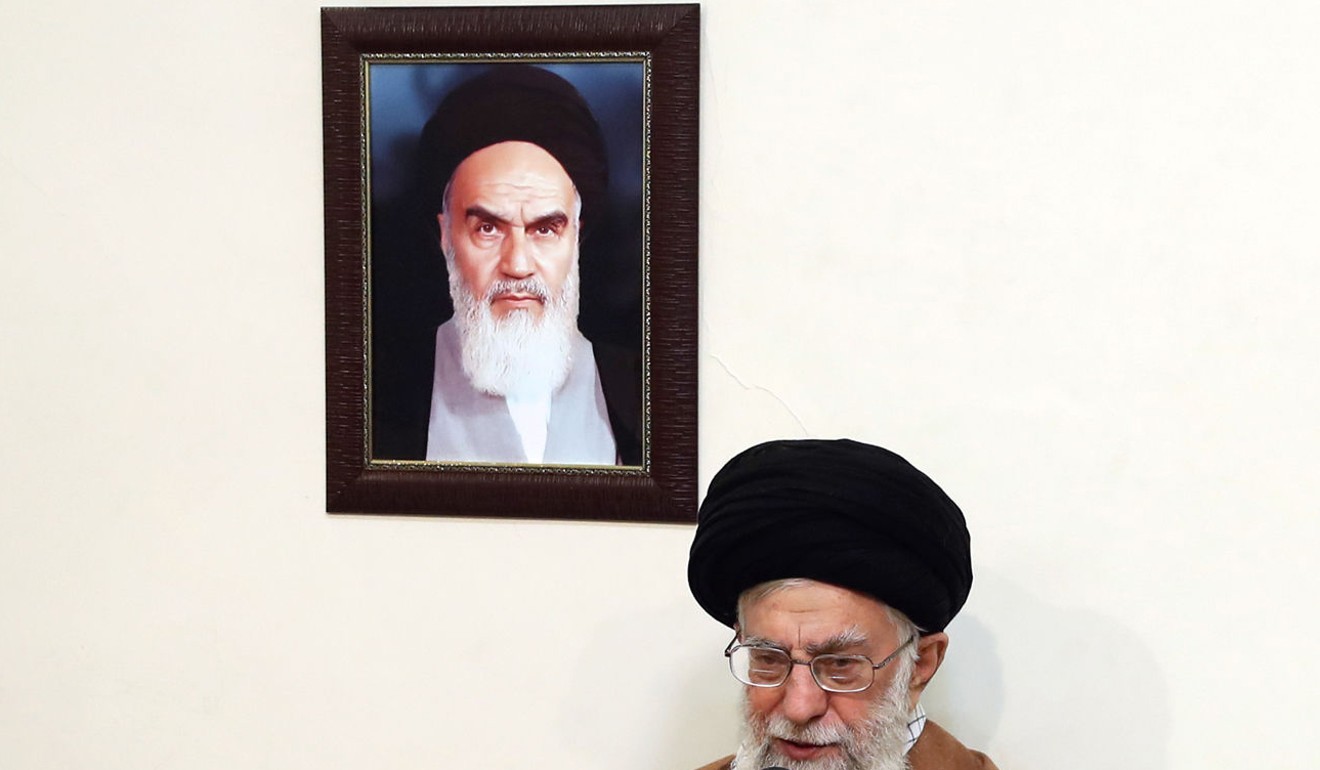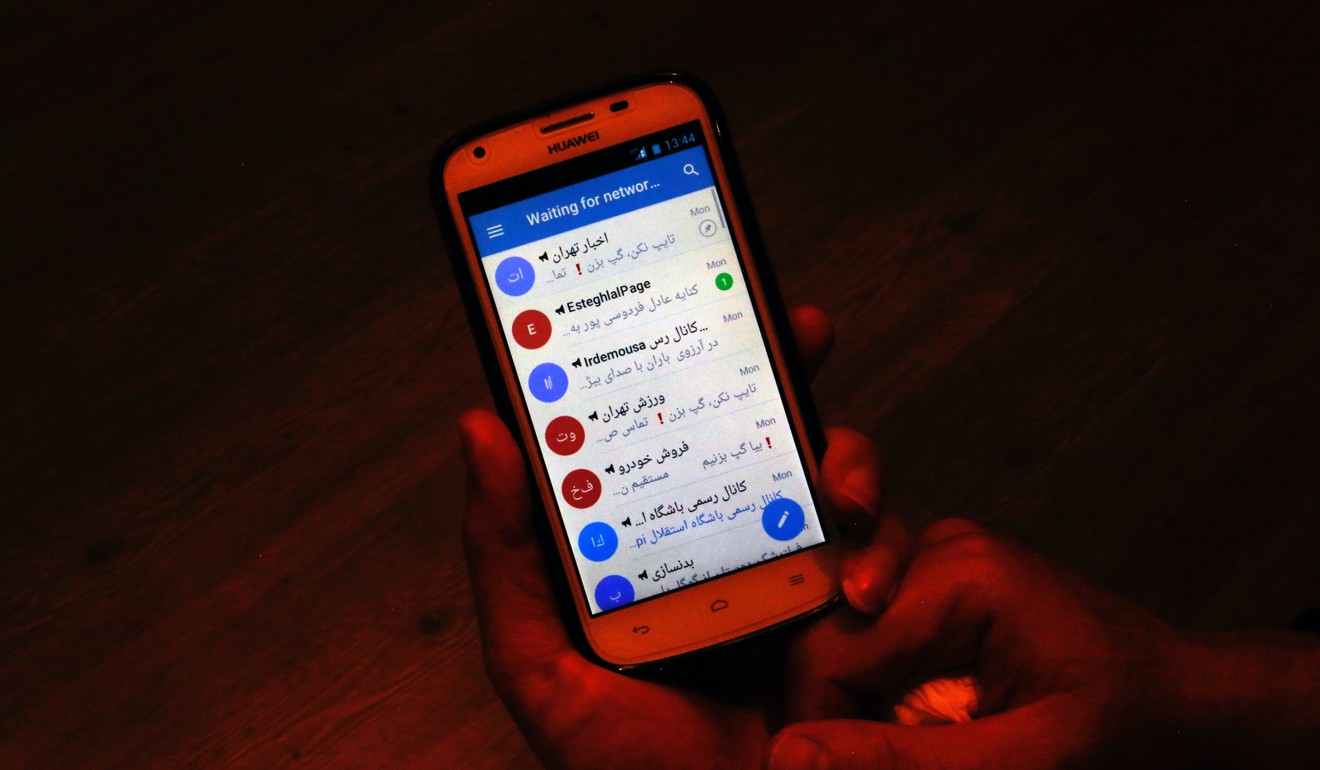
Iran protests: US pushes for emergency UN meeting and sanctions as deadly unrest spreads
Deadly protests in Iran have intensified talks within the Trump administration about imposing fresh sanctions against the Islamic Republic
The Trump administration has accused the Iranian government of blocking or suppressing communications used by anti-government protesters and began laying groundwork for new international sanctions targeting alleged human rights abuses.
As the protests continued for the sixth day Tuesday, the Trump administration attempted to grasp whether discontent would spiral into a full-fledged uprising or be smothered in government suppression.
The demonstrations began over economic grievances, but quickly turned political as people in cities and towns around the nation chanted broadly anti-government slogans.

Iran’s supreme leader, Ayatollah Ali Khamenei, blamed “enemies” for the unrest that has claimed 21 lives and quickly spread to become the biggest challenge to the Islamic regime since mass demonstrations in 2009.
US officials from the White House to the US State Department to the United Nations hastened to respond to the unrest, calling for Tehran to respect its citizens’ rights to protest peacefully.
In preparation, the administration began rallying support for an emergency UN Security Council meeting that could impose human rights sanctions on Iranian government officials.
“When a nation clamps down on social media or websites or Google or news sites, we ask the question: What are you afraid of?” said State Department spokeswoman Heather Nauert, as she called on Iran to restore access to social media sites used to spread news of protests. “We support the Iranian people, and we support their voices being heard.”
In an effort to thwart the Iranian government attempts at control, the State Department has urged technology and social media companies “to make sure the free flow of information is not interrupted,” a State Department official said.

The protests are presenting US President Donald Trump with a test of his vow to adopt a tougher posture in dealing with Iran than his predecessor did.
The protests also confront the Trump administration with the dilemma of how far to go in advocating the demise of a clerical regime that has been a sworn enemy of Washington for nearly 40 years.

“The people of Iran are finally acting against the brutal and corrupt Iranian regime,” Trump tweeted Tuesday. “
All of the money that President Obama so foolishly gave them went into terrorism and into their ‘pockets.’ The people have little food, big inflation and no human rights. The US is watching!”
That was a reference to the 2015 international nuclear deal negotiated under former president Barack Obama, which Trump has called a giveaway to a thuggish theocracy and the “worst deal” imaginable for the United States.
“We must not be silent,” UN Ambassador Nikki Haley said Tuesday.
Haley rejected as “complete nonsense” Khamenei’s charges that the protests were being fomented by Iran’s “enemies”.

“The freedoms that are enshrined in the United Nations charter are under attack in Iran. Dozens have already been killed. Hundreds have been arrested,” she said.
“If the Iranian dictatorship’s history is any guide, we can expect more outrageous abuses in the days to come.”
The United States was seeking emergency meetings of the United Nations Security Council and human rights adjudicator, Haley announced, as the administration worked behind the scenes to coordinate pressure on Iran from European governments.
US and European officials said they expect the United States and perhaps other nations to seek condemnation of Iran and possible sanctions.
EU foreign policy chief Federica Mogherini late Tuesday deplored “the unacceptable loss of human lives” and called on “all concerned to refrain from violence”.
The US administration’s outrage over treatment of peaceful protesters in Iran is more notable for its contrast with the milder reaction to human rights abuses elsewhere.
The White House has had comparatively little to say about harsh government tactics in Egypt, Saudi Arabia or Turkey, or the actions of Russian-backed forces in eastern Ukraine.
The Washington Post, Agence France-Presse, Bloomberg
